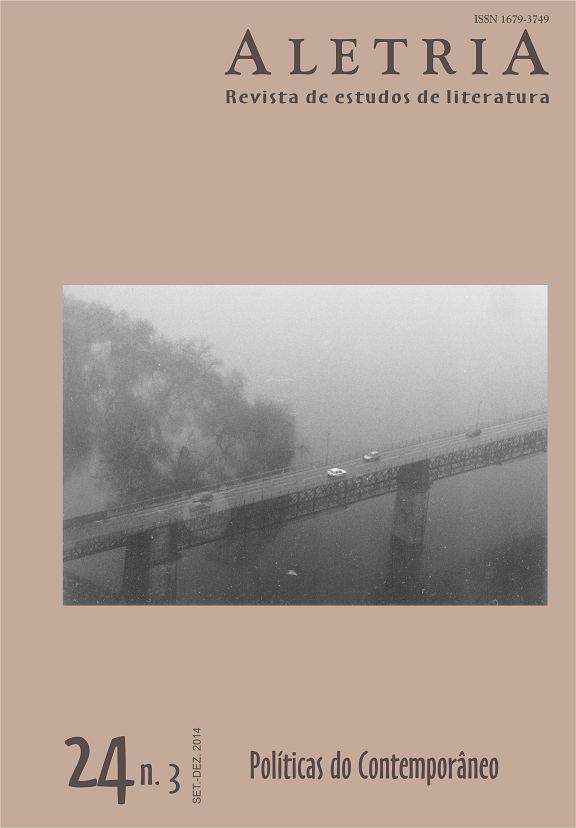Essential Communities, Demonic Legions: Dostoevsky, the Revolutionary Multitude and Modern Pessimism
DOI:
https://doi.org/10.17851/2317-2096.24.3.53-68Keywords:
community, multitude, socialism, modern pessimism, commonwealth, DostoevskyAbstract
This article seeks to shed light on some substrates of Dostoevsky’s criticism concerning the revolutionary movements in Russia in the second half of the 19th century and their occidentalist demands. To this end, we analyze the author’s pessimism in relation to Western modernity by an ethical, ontological, and political angle. Our thesis is that for Dostoevsky the civil society which descends from Rousseau’s social contract corrupts the realization of Russia as an orthodoxy based on the love of all by all and the love of the Czar by all. We establish, on the one hand, a critique of this harmonious and unified idealization of the Slavic people, while, on the other, we recognize the relevance of Dostoevsky’s suspicion for the examination of modern political philosophy. Dostoevsky seems to demand a reversal without which there could be no real politics: not politics as rational utilitarianism dictating life, but life – the shared essence and the original constituent practice of love – to continuously write politics.
Downloads
References
AGAMBEN, Giorgio. Homo Sacer: o poder soberano e a vida nua. Belo Horizonte: Editora UFMG, 2010. v. 1.
DOSTOIÉVSKI, Fiódor. A Writer’s Diary vol. I (1873-1876). Londres: Quartet Books, 1994.
DOSTOIÉVSKI, Fiódor. A writer’s diary vol. II (1877-1881). London: Quartet Books, 1995.
DOSTOIÉVSKI, Fiódor. Uma história lamentável. Rio de Janeiro: Paz e Terra, 1996.
DOSTOIÉVSKI, Fiódor. O crocodilo e Notas de inverno sobre impressões de verão. São Paulo: Editora 34, 2000.
DOSTOIÉVSKI, Fiódor. Crime e castigo. São Paulo: Editora 34, 2001.
DOSTOIÉVSKI, Fiódor. Os demônios. São Paulo: Editora 34, 2004.
DOSTOIÉVSKI, Fiódor. Os irmãos Karamazov. São Paulo: Editora 34, 2008.
DOSTOIÉVSKI, Fiódor. Correspondências (1838-1880). Porto Alegre: 8Inverso, 2011.
FIGES, Orlando. A People’s Tragedy: The Russian Revolution, 1891-1924. London: Jonathan Cape, 1996.
HARDT, Michael; NEGRI, Antonio. Multidão: guerra e democracia na era do Império. Rio de Janeiro: Record, 2005.
HARDT, Michael; NEGRI, Antonio. Império. Rio de Janeiro: Record, 2006.
HARDT, Michael; NEGRI, Antonio. Commonwealth. London: Harvard University Press, 2011.
MARX, Karl. Manuscritos econômico-filosóficos. São Paulo: Boitempo, 2006.
MARX, Karl; ENGELS, Friedrich. Manifesto do Partido Comunista. São Paulo: Global, 2006.
NANCY, Jean-Luc. Being Singular Plural. Stanford: Stanford University Press, 2000.
NEGRI, Antonio. The Politics of Subversion: A Manifesto for the Twenty-First Century. Cambridge (UK): Polity, 1989.
NEGRI, Antonio. The Savage Anomaly. Minneapolis: University of Minnesota Press, 1991.
NEGRI, Antonio. Insurgencies: Constituent Power and the Modern State. Minneapolis: University of Minnesota Press, 1999.
NEGRI, Antonio. Communist desire and the dialectic restored. In: NEGRI, Antonio. Insurgencies: Constituent Power and the Modern State (Theory Out of Bounds). Translated by Maurizia Boscagli. Minneapolis: University of Minnesota Press, 1999.
NIETZSCHE, Friedrich. Além do bem e do mal: prelúdio para uma filosofia do futuro. São Paulo: Companhia das Letras, 1992.
PAREYSON, Luigi. Dostoiévski: filosofia, romance e experiência religiosa. São Paulo: Edusp, 2012.
ROUSSEAU, Jean-Jacques. Do contrato social. São Paulo: Penguin Classics, 2011.
SCANLAN, James P. Dostoevsky the Thinker. New York: Cornell University Press, 2010.
Downloads
Published
How to Cite
Issue
Section
License
Copyright (c) 2014 Alemar Rena (Autor)

This work is licensed under a Creative Commons Attribution 4.0 International License.
Authors who publish with this journal agree to the following terms:Authors retain copyright and grant the journal right of first publication with the work simultaneously licensed under a Creative Commons Attribution Non-Commercial No Derivatives License that allows others to share the work with an acknowledgement of the work's authorship and initial publication in this journal.Authors are able to enter into separate, additional contractual arrangements for the non-exclusive distribution of the journal's published version of the work (e.g., post it to an institutional repository or publish it in a book), with an acknowledgement of its initial publication in this journal.Authors are permitted and encouraged to post their work online (e.g., in institutional repositories or on their website) prior to and during the submission process, as it can lead to productive exchanges, as well as earlier and greater citation of published work (See The Effect of Open Access).





